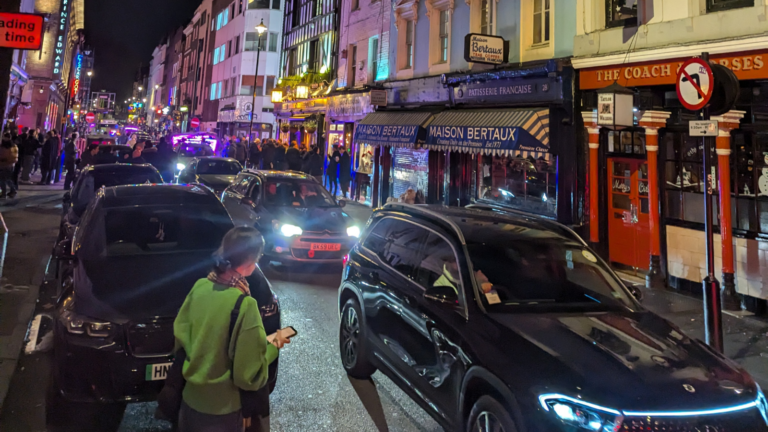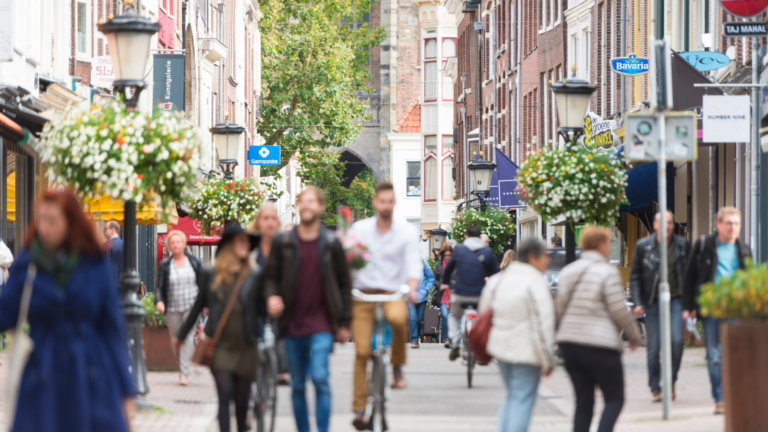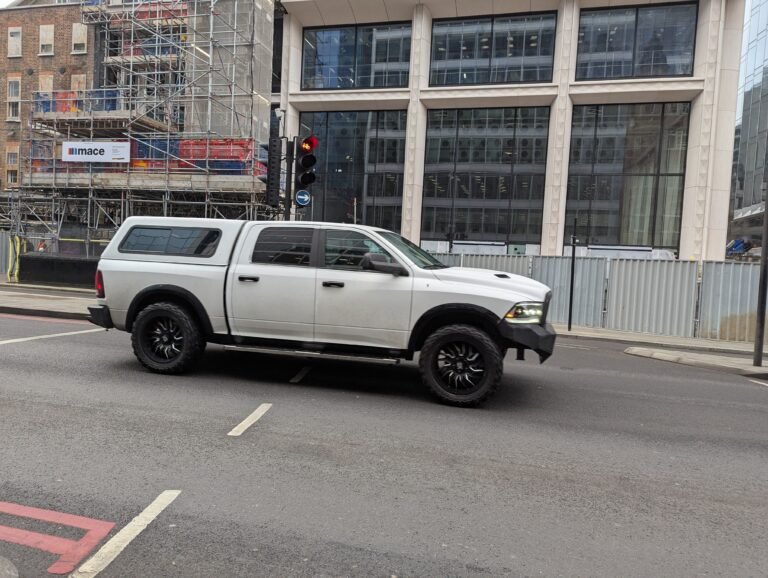
London sees dramatic increase in cargo bikes
London has seen a 63 percent increase in cargo bikes used by Londoners and businesses from 2022 to 2023.
- Latest data shows the number of cargo bikes increased by 63 percent in London in a year
- Cargo bikes could replace 17 percent of van deliveries by 2030 in certain London boroughs
- More than 50 businesses, campaigners and politicians join cargo bike convoy to demand support for zero emission deliveries
London has seen a 63 percent increase in cargo bikes used by Londoners and businesses from 2022 to 2023, this according to analysis by Clean Cities.
Research has shown that cargo bikes can reduce congestion, improve business efficiency, and support the development of more liveable and healthier cities. The hidden social and environmental costs associated with diesel vans in London total £2.46 billion annually.
Analysis from Transport for London highlights that cargo bikes could replace up to 17 percent of vans in parts of London by 2030.
This is equivalent to over 62 million miles, or 260 trips to the Moon with carbon savings resulting from cargo bike growth across Greater London in the region of 30,000 tonnes of CO2 a year by 2030.
To highlight and celebrate the increase in cargo bikes, today central London saw more than 80 cargo bikes take part in the annual Cargo Bike Cruise and in support of Clean Cargo Capital, a new campaign aiming to accelerate the uptake of electric and pedal powered commercial vehicles as part of a ‘green deal for freight’.

A group of 54 businesses who operate cargo bikes rode through central London, over London Bridge and past the Houses of Parliament, to celebrate different organisations using the sustainable alternative to petrol or diesel vans.
Labour’s Stella Creasy MP and Liberal Democrat Luke Taylor MP joined couriers, plumbers and electricians in the largest convoy to date.

Campaigners and businesses are calling on increased support from the Mayor for the uptake of cargo bikes as an alternative to polluting diesel and petrol vans, which have hidden social and environmental costs estimated to total £2.46 billion annually in London.
More than £100 million has been committed by TfL for businesses to scrap polluting vans but none of this has been dedicated to accelerate the uptake of cargo bikes.
Campaigners see this as a missed opportunity and are calling for a ‘Green Deal for Freight’, with remaining funds allocated to a ‘Bikes for Business’ project so that tailored advice and subsidies are made available to any London businesses wanting to adopt cargo bikes.
The group want to see measures that level the playing field between cargo bikes and more polluting delivery modes, such as a fairer and smarter Congestion Charge that more accurately reflects environmental and social costs of different modes, as well as an urgent river crossings package for cargo bikes as they are excluded from Silvertown Tunnel, which opens next year.
“In this area alone over 200 businesses have made a switch to cargo bike, whether it is for transporting legal contracts, blood samples, stationary or waste.
The change in London Bridge has been dramatic, and is having such a positive impact on the environment and the public. But there are barriers limiting progress, so we need partners, including the Mayor, local and national governments to share our vision if we are going to see this positive transformation continue across London.”
Jack Skillen, Director of Sustainability and Place, Team London Bridge

“We know that a quarter of a million children in London have asthma and that comes at a huge human and financial cost to all of us. When every breathe we take has toxins in, the impact of this crisis is one that affects each and every Londoner, but it is a crisis that is avoidable.
“As demonstrated today with the Cargo Bike Cruise, there are alternatives to the dirty diesel and petrol vehicles we see on our roads in still increasing numbers. We must see London transition to a cleaner and greener city, we must incentivise businesses to adopt not only electric vehicles but innovative and yet simple solutions such as the cargo bike.
Whether it be grocery deliveries or a local electrician, the humble cargo bike is being shown as an impactful tool in decarbonising local economies and cleaning up London’s air. We need to see further support from the Mayor for businesses to take part in this pedal powered revolution.”
Jemima Hartshorn, Founder, Mums For Lungs
Photo credits: Honor Elliott
Notes to editors:
- The growth in cargo bikes between 2022 and 2023 is driven by an increase in Inner London (+73%), with +54% in Central London and +55% in Outer London, resulting in 63% growth across Greater London.
- The Cargo Bike Charter is a pledge to switch council vans to cargo bikes, where possible, while enabling residents and businesses to use pedal power to make deliveries and provide key services. https://www.cargorevolution.org/borough-charter. To date, nine councils including Westminster and Lambeth have signed up to a five-point plan to improve the infrastructure for cargo bikes and support individuals and businesses to switch away from polluting vehicles.
- A TfL consultation is currently underway on a package of concessions and discounts to support Londoners and businesses when the Silvertown tunnel opens in 2025. Notably, within the package of measures support for cargo bike business users were absent.
- Electric vehicle (EV) owners will also be forced to pay the full daily congestion charge from December 2025, another cause for concern for campaigners.
- There are associated health and wellness benefits for workers operating cargo bikes instead of driving vans, more information here: https://blog.westminster.ac.uk/ata/wp-content/uploads/sites/60/2023/06/221222_Delivering-good-work_Londons-Cargo-Bike-secton_V6.pdf
- The hidden social and environmental costs associated with diesel vans in London total £2.46 billion annually. https://www.justeconomics.co.uk/delivering-value
- Distance to the moon calculated as 238 855 miles. 100 million km or 62137119.224 miles by vans could be replaced by cargo bikes.

